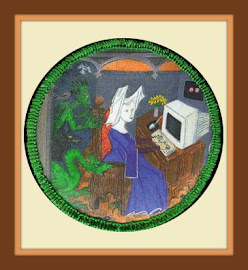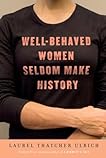As a 27 year old mother of two children in a cordial but emotionally unfullfilling marriage, Edna Pontellier experiences an awakening, leaving her restless and dissatisfied with her domestic life, the life of most women in her social class. She begins to struggle with her place in Creole society and (seemingly) lacks at outlet to the conventional roles of wife and mother.
We read this book in book group for March and I have needed to return to it to write a few notes. I really enjoyed Kate Chopin's beautiful and descriptive writing. Her descriptions of Creole locations evoked the sticky feeling of humid muggy summer weather and it was the perfect companion for a cold wintertime day. I noticed, though, that it seemed to add to my sweat output when I read it at the gym.
The first line of the book describes a bird in a cage, an apt symbol for Edna's feeling that society has trapped her with narrow and, to her, constrictive expectations. Chopin returns to images of birds several times in the book. The final scene before Edna's suicide swin in the ocean portrays a bird with broken wings fluttering about helplessly, reeling toward the water. To me, it was a sad and depressing image. Rather than experiencing the freedom of flight, Edna's awakening has only produced a tragic figure, unable to find a place to live and find happiness.
I read several of the essays in the Norton Critical Edition of the book, and I was frustrated with how many of the writers characterized her awakening in purely sexual terms. The cover of one of the editions shows the misleading picture of a partially nude woman gazing out the window. Yes, she falls in love with Robert and experiences entirely new physical feelings. She seeks physical fullfillment with a man known for his sexual escapades. But, there was so much more to her awakening that this. It all begins, at least in the novel, with Leonce, her husband, choosing to eat dinner at the club rather than with his wife and children. He comes in late, after she is sound asleep, and expects her to talk animatedly with him. Then, he "checks" on the children, enough to tell her that one of them is feverish, although she is certain this is not the case:
He reproached his wife with her inattention, her habitual neglect of the children. If it was not a mother's place to look after children, whose on earth was it? He himself had his hands full with his brokerage business...He talked on in a monotonous, insistent way.
Mrs Pontellier sprang out of bed and went into the next room. She soon came back and sat on the edge of the bed, leaning her head down on the pillow. She said nothing and refues to answer her husband when he questioned her. When his cigar was smoked out, he went to bed, and in half a minute he was fast asleep.
She responds to this incident by going outside, where she begins sobbing, but for what reason, she cannot tell. "An indescribable opression filled her being with a vague anguish."
This chapter ends a few paragraphs later when a gift of delicious chocolates and sweets is sent to Edna from Leonce, her husband. The women with whom she shared this treat "all declared that Mr. Pontellier was the best husband in the world. Mrs Pontellier was forced to admit that she knew of none better." She is unhappy with her marriage, she feels anguish and oppression, but yet, she believes that Leonce is one of the better husbands around.
Looking at it with cynical and post-modern eyes, I, of course, completely reject the idea that a husband's measure of success is how often he provides chocolates and gifts and the manner in which he provides money for household luxuries and furnishings. I firmly believe that he should be up with the children at night if he believes they need it. And I have words to describe why a woman should be dissatisfied in such a marriage as Edna's. However, Edna lives in the 1890's: female discontent and balking at traditional roles is uncommon. She cannot express the reasons for her emotional state.
I also found the scene where Edna learns to swim particularly poignant, especially on my second reading of it. After trying to learn to swim all summer, one evening she finds herself with sudden success.
A feeling of exulatation overtook her, as if some power of significant import had been given her soul. She grew daring and reckless, overestimating her strength. She wanted to swim far out, where no woman had swum before.
Here, she begins to feel her own power. She has success in swimming and immediately begins to anticipate excelling. "As she swam she seemed to be reaching out for the unlimited in which to lose herself."
The tragedy, in my estimation, is that this new found independence is ultimately the cause of her demise. She experiences the sublime pleasure of discovering that she can accomplish something new, but in the end, the same ocean where she learns to swim is where she gives up her ambition to live and lets herself drown.
I didn't love the character of Edna. I felt that, if she were a woman of flesh and blood, there was much she could have done to shape her circumstances and that the story of a woman like Edna didn't have to end tragically. Yet, I think Chopin is very wise in the way she lets the story unroll and with the final scene of Edna's suicide. She is telling a story on a broad level, on a societal level, drawing out to its fullest the consequences of pigeonholing women in narrow roles, with little room for personal choices. I really loved this book.












No comments:
Post a Comment